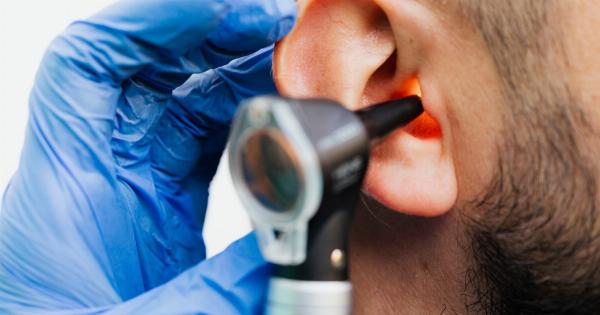Vertigo is a common condition that affects millions of people around the world. It is a type of dizziness that causes a spinning sensation and can be very disorienting.
In this article, we will discuss 15 key points about vertigo, from its causes and symptoms to its treatment and prevention.
1. What Is Vertigo?
Vertigo is a type of dizziness that makes you feel like you are spinning or that the world is spinning around you. It can be caused by a problem in the inner ear or the brain.
Vertigo can be brief or last for an extended period, and the symptoms can vary in severity.
2. What Causes Vertigo?
Vertigo can be caused by many different things, including:.
- Inner ear infections or disorders
- Injury to the head or neck
- Migraine headaches
- Medications that affect the inner ear or brain
- High blood pressure
- Anxiety
3. What Are the Symptoms of Vertigo?
The symptoms of vertigo can include:.
- Dizziness
- Spinning sensation
- Lightheadedness
- Nausea
- Vomiting
- Difficulty walking or standing
- Blurred vision
4. How Is Vertigo Diagnosed?
Vertigo is diagnosed by a doctor or other healthcare professional. They will ask you about your symptoms and medical history and perform a physical exam. They may also order tests to rule out other conditions, such as an MRI or CT scan.
5. What Are the Types of Vertigo?
There are two types of vertigo:.
- Peripheral Vertigo: This type of vertigo is caused by a problem in the inner ear, such as an infection or disorder.
- Central Vertigo: This type of vertigo is caused by a problem in the brain, such as a tumor or stroke.
6. How Is Vertigo Treated?
The treatment for vertigo depends on the underlying cause. Some treatments may include:.
- Vestibular rehabilitation therapy
- Medications, such as anti-nausea drugs or benzodiazepines
- Surgery, in rare cases
7. What Is Vestibular Rehabilitation Therapy?
Vestibular rehabilitation therapy is a type of physical therapy that is designed to help improve balance and reduce vertigo symptoms. It includes exercises that help the brain and inner ear adapt to changes and improve communication between them.
8. Can Vertigo Be Prevented?
Some types of vertigo can be prevented by avoiding certain triggers, such as alcohol or certain medications. Other preventive measures may include:.
- Eating a healthy diet
- Getting regular exercise
- Practicing stress management techniques
- Using caution when driving or operating heavy machinery
9. What Is Ménière’s Disease?
Ménière’s disease is a condition that affects the inner ear and can cause vertigo, hearing loss, and tinnitus (ringing in the ears). It is a chronic condition that can be managed with medication and lifestyle changes.
10. What Is Benign Paroxysmal Positional Vertigo (BPPV)?
Benign Paroxysmal Positional Vertigo (BPPV) is a type of vertigo that is caused by the displacement of small crystals within the inner ear. It can be treated with a simple procedure called the Epley Maneuver.
11. Can Vertigo Be a Sign of Something More Serious?
Vertigo can be a sign of a more serious condition, such as a tumor or stroke. If you experience vertigo, it is important to see a doctor to rule out any underlying conditions.
12. Can Vertigo Go Away on Its Own?
Vertigo can go away on its own, but it can also be a chronic condition that requires treatment. If you experience vertigo, it is important to see a doctor for an accurate diagnosis and appropriate treatment.
13. How Can I Manage Vertigo Symptoms?
You can manage vertigo symptoms by:.
- Avoiding triggers, such as alcohol or certain medications
- Getting adequate rest
- Practicing stress-reducing activities, such as yoga or meditation
- Eating a healthy diet
- Staying hydrated
14. What Is the Prognosis for Someone With Vertigo?
The prognosis for someone with vertigo depends on the underlying cause and the effectiveness of treatment. In some cases, vertigo may resolve on its own, while in other cases, it may be a chronic condition that requires ongoing management.
15. When Should I See a Doctor for Vertigo?
You should see a doctor for vertigo if:.




























